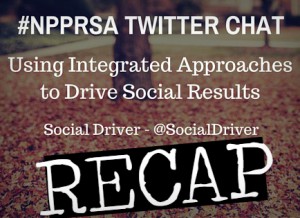When it comes to marketing your brand and yourself, maintaining strong public relations is the key to finding success. Those that are able to nail their PR strategies and handle mishaps with grace are typically able to overcome challenges and move forward in their careers. Today’s consumers are quick to react to negative PR; therefore, doing PR right the first time is essential.
 Perhaps the best examples of professional public relations strategies leading to success come from this season’s presidential candidates. With the amount of media attention given to those running for political office, it is easy to examine and understand the broad impact of PR successes and failures. Here are just a few tips on personal branding to be taken from the individuals running for the oval office.
Perhaps the best examples of professional public relations strategies leading to success come from this season’s presidential candidates. With the amount of media attention given to those running for political office, it is easy to examine and understand the broad impact of PR successes and failures. Here are just a few tips on personal branding to be taken from the individuals running for the oval office.
Shock and Awe
In an age of internet and short attention spans, it doesn’t bode well to forget that your target audience doesn’t want to see the same branding ploys over and over again. They want to be surprised and entertained. Furthermore, they want to learn something new and share the information with friends. Using a shock and awe approach to branding is a great way to break into a new market and achieve notice.
Donald Trump is the obvious voice of success for the shock and awe method whether or not you agree with his politics. Trump entered the Republican race with little political experience and even fewer political allies, yet he has skyrocketed to the top of the polls and has remained there ever since. His personal marketing strategy has worked out well in garnering attention; people cannot wait to hear and share his next bombastic comment and the media can’t get enough of him.
Use the Internet Wisely
The internet can be a fickle place where potentially great PR strategies turn into living nightmares. It can also be a massive boon to your personal brand if a post goes viral. Either way, a strong understanding of trends and a close eye on changes is imperative to internet branding success. Before posting anything, be sure to think of all the possible implications of sharing it with the world.
A number of presidential candidates have struggled with internet related PR nightmares. For instance, numerous Tweets and website based mishaps have prompted multiple inquiries as to whether or not many candidates even understand the internet or if they are too disconnected. Backlash for many of these mishaps can be swift and harsh, as well as spell the end to running for an election.
Try Something New
A number of presidential candidates are finding new avenues for connecting with a younger audience. One of the primary targets has been appearances on late night television with hosts that are just as likely to poke fun at the establishment as ask about any policies. One notable example is Jeb Bush’s appearance on the Late Show, which is now hosted by traditionally mock-conservative politico, Stephen Colbert.
Creating a successful personal brand involves a lot of innovation and the ability to put yourself out there and attract new audiences. Much like presidential candidates appearing on comedy tv to build relations among both the young and those that don’t regularly follow politics, it involves entering a realm of relative discomfort and making the most of it. Triumphing in this arena opens numerous doors and provides countless opportunities for your brand.
Be Responsive
Another aspect to a successful PR strategy during a presidential campaign is responsiveness. For candidates especially, something negative will eventually happen and how he or she responds in the aftermath can make or break a political career. Often times voters demand a public apology or acknowledgement of the situation, they want to remain informed and see that something is being done to rectify it. Take Hillary Clinton’s email fiasco as an example.
Whether your PR campaign goes really well or poorly, perhaps the most important aspect in retaining appreciation in your audience is to follow through. Be as responsive and transparent as possible to both good and bad comments. Your audience appreciates a response and feeling as though their voices are heard.
The 2016 presidential candidates provide an excellent ground for observing and learning about the costs and benefits of specific public relation strategies. Because of their high level of media attention it is easy to discover the flaws in plans and the quick adjustments that can be made to boost personal branding. Taking the time to learn from the candidates and adapt your personal branding strategy can be a significant benefit.
—
 Brittni Brown is a current Masters candidate at The University of Idaho. In her free time she enjoys a variety of outdoor activities including hiking, biking, and camping.
Brittni Brown is a current Masters candidate at The University of Idaho. In her free time she enjoys a variety of outdoor activities including hiking, biking, and camping.

 How do you accomplish fitting in and knowing how to act? Follow these four tips that will surely make you a part of the team and not just the “new” person.
How do you accomplish fitting in and knowing how to act? Follow these four tips that will surely make you a part of the team and not just the “new” person.





